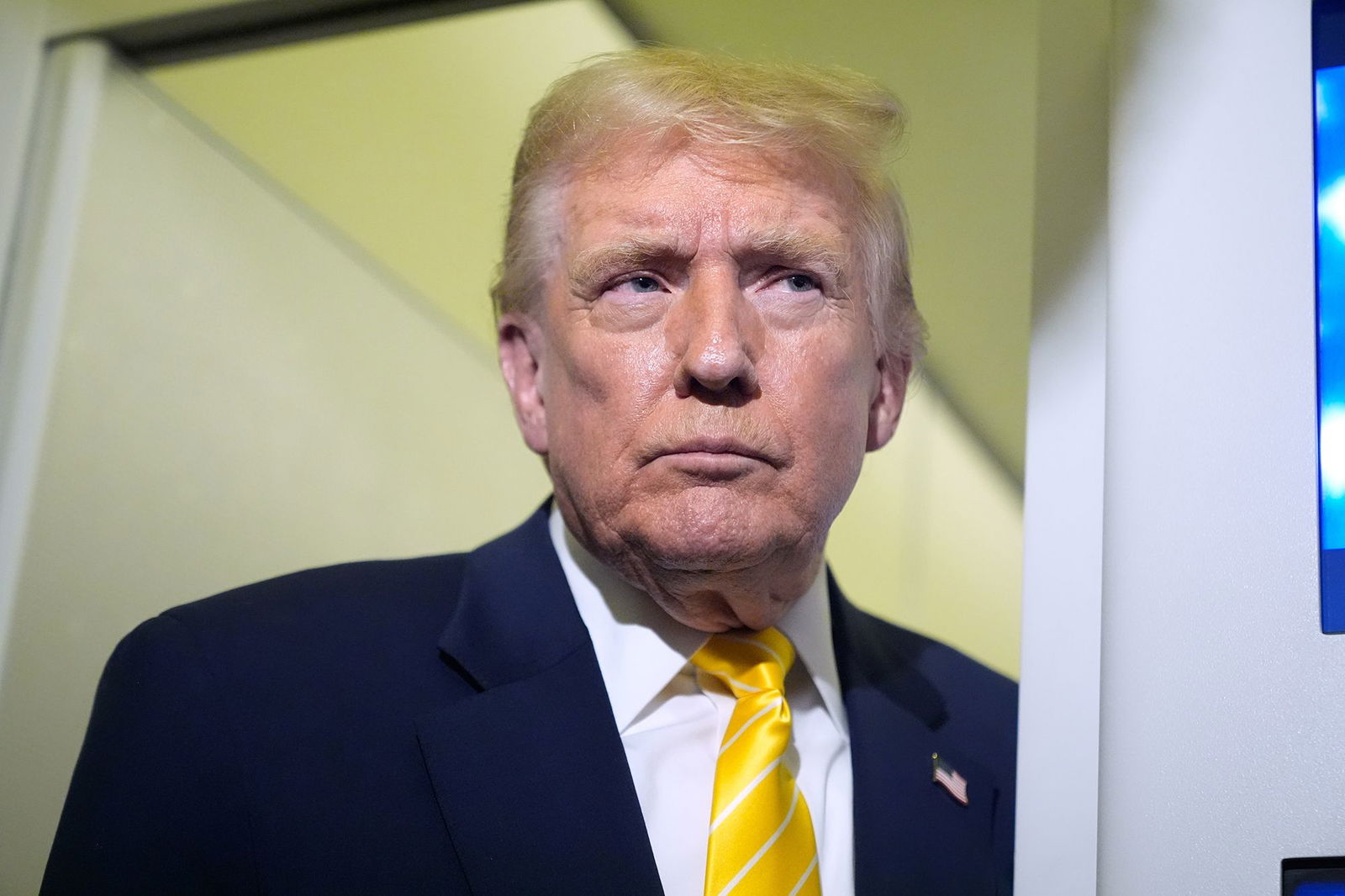Trump renews effort to block states from regulating AI, raising alarms about safety

President Donald Trump speaks to reporters on Air Force One on his way to his Mar-a-Lago estate in Palm Beach on November 14.
By Clare Duffy, CNN
New York (CNN) — President Donald Trump has drafted an executive order that would block states from enforcing regulations around artificial intelligence, renewing an AI deregulation push that’s raising concerns among tech safety advocates and state lawmakers on both sides of the aisle.
The draft order directs the US attorney general to establish an AI Litigation Task Force to challenge state AI laws and preempt them with Trump’s more lax federal policy, according to a copy viewed by CNN.
The fast-moving technology is already subject to little oversight as it extends into more areas of life — from personal communications and relationships to health care and policing. In the absence of broad federal legislation, some states have passed laws to address potentially risky and harmful uses of AI, such as the creation of misleading deepfakes and algorithmic discrimination in hiring. Critics of the preemption push worry that if left unchecked, AI companies could evade accountability should their tools harm consumers.
Asked for comment about the pushback, a White House official told CNN that until officially announced by the White House, discussion about potential orders is speculation.
The language in Trump’s draft order mirrors the argument from some in the tech industry, including OpenAI CEO Sam Altman, that navigating a patchwork of state laws would slow down innovation and could affect America’s competitiveness.
“It is the policy of the United States to sustain and enhance America’s global AI dominance through a minimally burdensome, uniform national policy framework for AI,” the draft order states.
Trump also suggested adding language blocking state AI regulations to the National Defense Authorization Act, the annual defense policy bill, in a Tuesday post on Truth Social.
Congress killed an earlier attempt by Republicans to prevent states from regulating AI in July. The US Senate voted nearly unanimously to remove a 10-year moratorium on the enforcement of state artificial intelligence regulations from Trump’s sweeping domestic policy bill before the bill passed. Weeks later, the Trump administration released a Silicon Valley-friendly AI action plan, a package of initiatives and policy recommendations that largely centered on scaling back AI regulation to promote US competitiveness.
While some in Silicon Valley may support easing up on AI regulation, the proposal has received broad pushback as concerns about AI safety have escalated in recent months. A growing string of reports have highlighted risks of the technology causing delusions or contributing to self-harm among users. Companies like OpenAI and Meta have also been scrambling to block young people from accessing adult content via AI systems.
Florida Governor Ron DeSantis called the effort “federal government overreach” in a Tuesday post on X.
“Stripping states of jurisdiction to regulate AI is a subsidy to Big Tech and will prevent states from protecting against online censorship of political speech, predatory applications that target children, violations of intellectual property rights and data center intrusions on power/water resources,” he said.
Democratic Senator Ed Markey called out Republicans for “trying to sneak their AI regulation moratorium into the defense bill” and accused Trump of siding “with his billionaire Big Tech buddies,” in an X post Wednesday.
The renewed preemption push comes as Trump hosted a dinner at the White House this week for business leaders, which was attended by many AI industry leaders, including Elon Musk, Nvidia CEO Jensen Huang, OpenAI President Greg Brockman and tech investor and White House AI and Crypto Czar David Sacks.
Hundreds of organizations — including tech employee unions and other labor groups, tech safety and consumer protection nonprofits and educational institutions — signed letters to Congress this week opposing the idea of blocking state AI regulations and raising alarms about AI safety risks.
“This draft executive order isn’t about interstate commerce or American competitiveness,” Alejandra Montoya-Boyer, vice president of The Leadership Conference’s Center for Civil Rights and Technology, said in a statement. “It’s about giving the administration’s tech billionaire buddies and corporations a free pass rather than protecting the people it’s meant to serve.”
J.B. Branch, big tech accountability advocate at the consumer protection nonprofit Public Citizen, noted in a statement that “AI scams are exploding, children have died by suicide linked to harmful online systems, and psychologists are warning about AI-induced breakdowns” and that blocking state regulations could “shield Silicon Valley from responsibility.”
The-CNN-Wire
™ & © 2025 Cable News Network, Inc., a Warner Bros. Discovery Company. All rights reserved.



